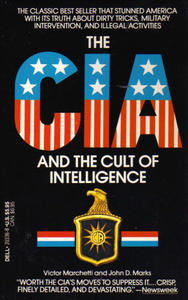After leaving The Washington Post in 1977, Carl Bernstein spent six months looking at the relationship of the CIA and the press during the Cold War years. His 25,000-word cover story, published in Rolling Stone on October 20, 1977, is reprinted below.
By Carl Bernstein
October 20, 1977 In 1953, Joseph Alsop, then one of America’s leading syndicated columnists, went to the Philippines to cover an election. He did not go because he was asked to do so by his syndicate. He did not go because he was asked to do so by the newspapers that printed his column. He went at the request of the CIA.
Alsop is one of more than 400 American journalists who in the past twenty‑five years have secretly carried out assignments for the Central Intelligence Agency, according to documents on file at CIA headquarters. Some of these journalists’ relationships with the Agency were tacit; some were explicit. There was cooperation, accommodation and overlap. Journalists provided a full range of clandestine services—from simple intelligence gathering to serving as go‑betweens with spies in Communist countries. Reporters shared their notebooks with the CIA. Editors shared their staffs. Some of the journalists were Pulitzer Prize winners, distinguished reporters who considered themselves ambassadors without‑portfolio for their country. Most were less exalted: foreign correspondents who found that their association with the Agency helped their work; stringers and freelancers who were as interested in the derring‑do of the spy business as in filing articles; and, the smallest category, full‑time CIA employees masquerading as journalists abroad. In many instances, CIA documents show, journalists were engaged to perform tasks for the CIA with the consent of the managements of America’s leading news organizations.
WORKING PRESS — CIA STYLE understand the role of most journalist‑operatives, it is necessary to dismiss some myths about undercover work for American intelligence services. Few American agents are “spies” in the popularly accepted sense of the term. “Spying” — the acquisition of secrets from a foreign government—is almost always done by foreign nationals who have been recruited by the CIA and are under CIA control in their own countries. Thus the primary role of an American working undercover abroad is often to aid in the recruitment and “handling” of foreign nationals who are channels of secret information reaching American intelligence.
Many journalists were used by the CIA to assist in this process and they had the reputation of being among the best in the business. The peculiar nature of the job of the foreign correspondent is ideal for such work: he is accorded unusual access by his host country, permitted to travel in areas often off‑limits to other Americans, spends much of his time cultivating sources in governments, academic institutions, the military establishment and the scientific communities. He has the opportunity to form long‑term personal relationships with sources and—perhaps more than any other category of American operative—is in a position to make correct judgments about the susceptibility and availability of foreign nationals for recruitment as spies.
“After a foreigner is recruited, a case officer often has to stay in the background,” explained a CIA official. “So you use a journalist to carry messages to and from both parties”
Journalists in the field generally took their assignments in the same manner as any other undercover operative.

You need to be a member of 12160 Social Network to add comments!
Join 12160 Social Network